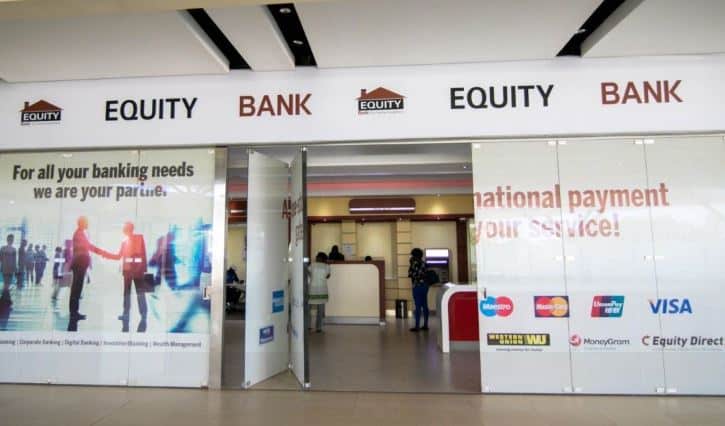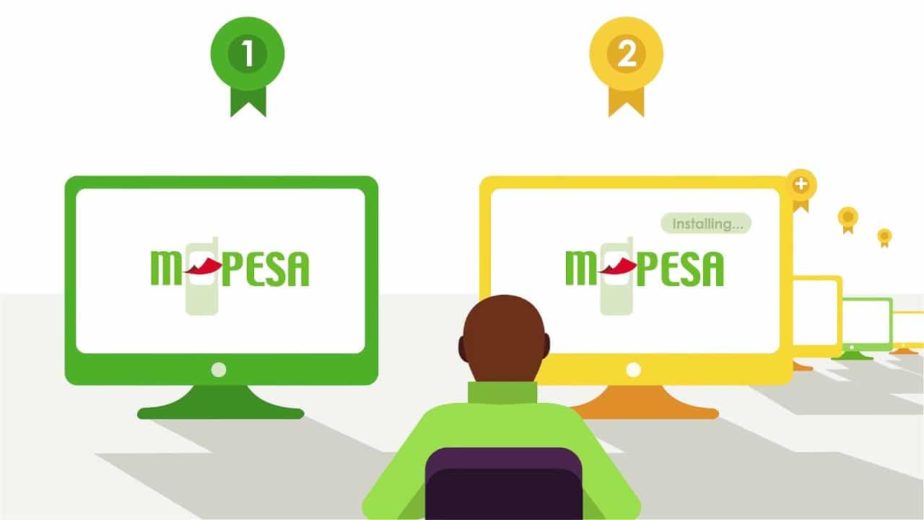Equity’s Fintech capabilities in the diaspora have increased transaction volumes by 196% to Ksh 107 Billion. Commissions also recorded a 169% rise from Ksh 279 million in 2017 to Ksh 751 million after the same period last year.
The results came in the backdrop of a unique business model and strategy that creates resilience while managing headwinds of interest rate capping and challenging macro-economic and business environment.
What are the Fintech capabilities?
Let’s start by first asking what Fintech means, Fintech (an abbreviation of financial technology) is an umbrella term for any kind of technological innovation used to support or provide financial services.
It is creating many changes in the financial sector and giving rise to a range of new business models, applications, processes, and products.
All financial service providers are increasingly reliant on technology but Fintech firms put technology-driven innovation at the very core of their business activities.
They may be particularly active in areas such as new payment systems or automated investment advice.
What is a Fintech bank?
Within the broad Fintech category, Fintech banks follow one specific type of business model. The central role played by technology is what distinguishes a Fintech bank from a traditional one.
However, many traditional banks are also adopting Fintech solutions and in some cases are partnering with – or even acquiring – Fintech firms to enhance their innovation capabilities.
Technological advancements such as the Automated Teller Machine (ATM), online banking and bill payment, and mobile banking have enhanced consumer experience in banking and payments, while alleviating costs, increasing convenience, and streamlining processes.
The shock of the great recession, coupled with the emergence of new technology applications in self-service, online and mobile banking, machine learning, Big Data, and artificial intelligence (AI) may now be sowing the seeds of financial services disruption.
By prioritizing 24/7 access, FinTechs offer services available via non-traditional channels such as social media, empowering customers to a great extent.
You might also like: List of Fintech Companies in Kenya 2019
By 2020, social media will be the primary medium to connect, engage, inform and understand customers (from the mass ‘social mind’ to the minutiae of each and every individual), as well as the place where customers research and compare banks’ offerings.
Over the next five years, channel diversification will be a key driver in the banking sector:
- Over 90% of banks expect growth in the usage of mobile applications, much higher than any other financial sector.
- A fast-paced user increase is also expected in the usage of the website and/or web-based platforms (82%).
- Traditional providers are increasingly taking a ‘mobile-first’ approach to reach out to consumers, e.g. designing their products and services with the aim of enhancing customer engagement via mobile.
- More than half (52%) of the respondents in our survey offer a mobile application to their clients, and 18% are currently developing one.
Conclusion about Equity Fintech capabilities
Speaking during the 2018 full year results release, Equity Group CEO & MD Dr. James Mwangi noted that remittances have taken a significant market share moving from Ksh 36 Billion to Ksh 107 Billion.
Equity continues to invest in solutions through innovations and strategic partnerships with global money remittance outlets targeting Kenyans living and working abroad.
According to the Central Bank data, total cash flows from foreign countries increased 39 percent to Ksh 274.37 billion in relation to Ksh 198.07 billion in 2017.
June recorded the highest diaspora remittances with US leading following by Europe and the rest of the world inflow earnings. In 2018, Equity Group profits grew to Ksh 28.5 billion, profit growth of 6% and a 13% growth in customer deposit.
Customer base grew t 13.5% million clients and customer deposits grew at 13% to reach Ksh 422.8 billion up from Ksh 373.1 billion. Equity Group Holdings in 2018 spun off its Fintech arm to a subsidiary that saw it have independent operations and its own board.
Finserve Africa, which runs Equitel, operates as an autonomous commercial enterprise providing solutions not just for Equity Group, but to other organizations. Finserve also integrated global Fintech like Ali Pay and Wechat.
By integrating with remittance partners across the world such as Wave, PayPal, Equity Direct, Western Union and Money Gram, the Bank has become the leading channel for diaspora remittances. Effectively, Finserve has become the Fintech convergence point for players from both the East and West.




